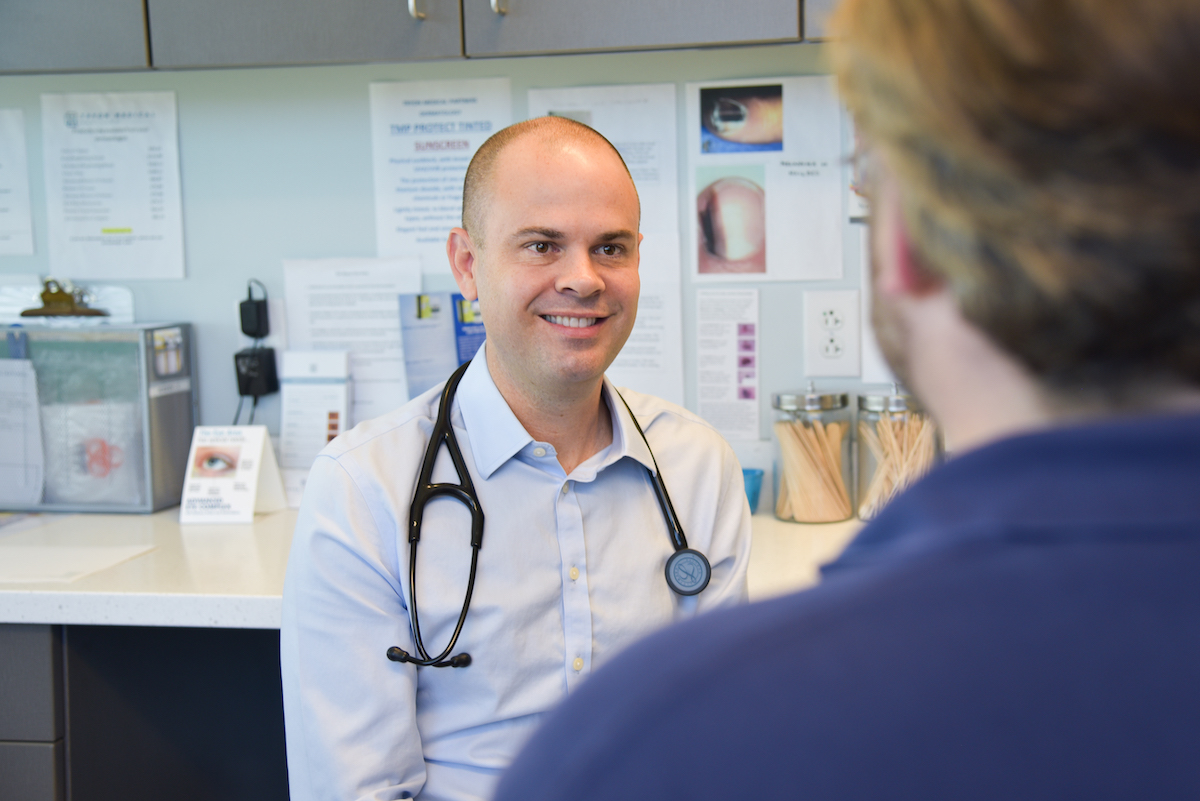 Navigating the labyrinth of mental health can be daunting, particularly when determining which healthcare professionals are best equipped to address individual needs. From primary care clinicians to psychiatrists, psychologists, and therapists, the array of options can be overwhelming.
Navigating the labyrinth of mental health can be daunting, particularly when determining which healthcare professionals are best equipped to address individual needs. From primary care clinicians to psychiatrists, psychologists, and therapists, the array of options can be overwhelming.
Tryon Medical Partners internal medicine specialist Dr. Brownlee weighs in to demystify this process, offering guidance on doctors for depression and anxiety, among other mental health concerns. By understanding the roles of different depression specialists, individuals can make informed decisions about seeking the appropriate care for their mental well-being, ultimately fostering a path toward healing and recovery.
When should I consider seeing a doctor that treats depression?
Dr. Brownlee shares the advice he tends to give patients: if your mental health is starting to impact your life, such as increased irritability with your family, insomnia, chest discomfort, or decreased job performance, it may be time to consult with a healthcare professional.
“We all deal with stress, anxiety, and feeling overwhelmed, it is a part of life,” Dr. Brownlee acknowledges. “But if it’s infiltrating multiple aspects of your life in a negative way, it’s time to come in.”
It’s important to keep an eye out for symptoms of depression and anxiety, including:
Depression:
- Difficulty sleeping
- A lack of enjoyment in things you normally enjoy
- Fatigue
- Decreased mood
- Changes in appetite (increased or decreased)
- Feelings of sadness
Anxiety:
- Trouble concentrating or making decisions
- Feeling irritable, tense, or restless
- Experiencing nausea or abdominal distress
- Heart palpitations
- Increased sweating, trembling, or shaking
- Difficulty sleeping
- A sense of impending danger, panic, or doom
“For many, anxiety can feel like vibrating at too high of a level,” Dr. Brownlee shares. “For most people, anxiety is a pot of water on the stove. That water level will naturally go up and down as life continues on. But if the pot is constantly simmering and threatening to boil over, it may be a problem.”
Where should I start when looking for a depression and anxiety therapist?
Dr. Brownlee advises starting the conversation with someone like him, a primary care clinician. With mental health, it’s not always as simple as taking medication or seeing a therapist once a week. If you go in to see your primary care clinician, they will walk through different treatment options with you. The question of seeing a psychiatrist vs. a primary care physician is a matter of knowing your options and deciding which makes sense for you. Your primary care clinician is well-equipped to have this conversation with you.
Additionally, sometimes mental healthcare can have a stigma and patients are hesitant to be seen in a waiting room at a psychiatrist or psychologist. Going in to see your primary care clinician protects your anonymity, if that is important to you.
“The advantage of a primary care setting for mental healthcare is that it’s a safe place to examine options,” Dr. Brownlee emphasizes. “If we have to do something more extensive to take care of a mental health concern, we can always refer out, but starting with your primary care office is a great and effective first step.”
When should I consider a depression specialist?
Dr. Brownlee weighs in on some of the other individuals you may work with in seeking mental health support:
Depression and Anxiety Therapist
If therapy is part of your treatment plan, your primary care clinician will be able to refer you to therapists who can help you with that next step. Therapists can have different training, such as psychologists or social workers, and your primary care clinician can help guide you through the process of finding someone.
“The most important aspect of a therapist is them being someone you’re willing and able to open up to, so I would be able to make recommendations of therapists based on your preferences,” Dr. Brownlee notes.
Psychiatrist vs. Primary Care Clinician or Family Doctor
If medication is part of your treatment plan, psychiatrists can provide medication consults. Like your primary care clinician, they went to medical school and also did a psychiatric residency. However, unlike your primary care clinician, it is often difficult to get an appointment and may take a while, compared to the 24-48 hours in which you can see a primary care clinician.
“One important caveat,” Dr. Brownlee emphasizes, “Is that if you are having suicidal thoughts and have a plan, that is urgent. Find someone who you can talk to quickly, like urgent care or an emergency room. There’s no need to wait for an appointment with your primary care office, therapist, or psychiatrist.”
How should I prepare for my appointment?
As you prepare for an appointment with a mental healthcare provider, Dr. Brownlee recommends thinking about this question: “In a magical world, what is the number one thing you would improve about your life?”
“If you think about this and come up with an answer, the more specific you can get, the better your clinician will be able to help you,” Dr. Brownlee encourages. “Your situation is unique to you. There are many different interventions and medications to try so the more specifically we can target them, the better your outcome will be.”
If you want to kick off a conversation with your primary care team about mental health, use MedChat to schedule an appointment with a Tryon clinician today.

